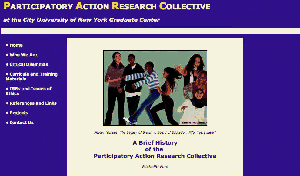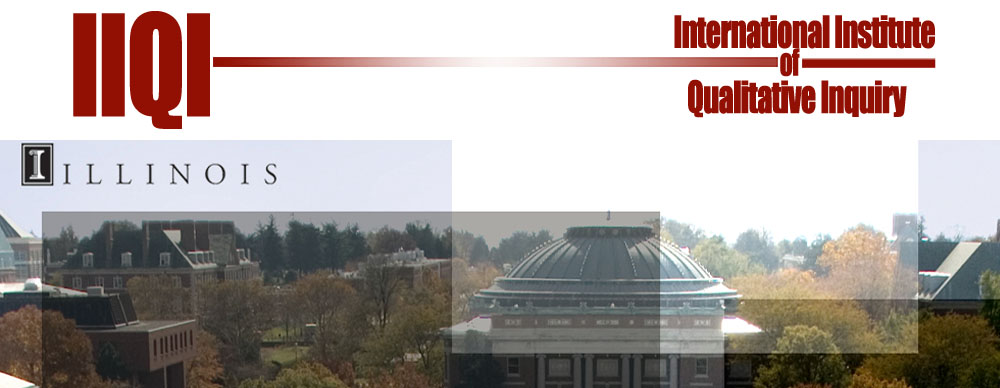The City University of New York
Participatory Action Research Collective at the City University of New York Graduate Center
Website Link:
http://web.gc.cuny.edu/che/start.htm

The Participatory Action Research (PAR) Collective at the CUNY Graduate Center dreams wildly about critical inquiry, social theory and the politics of social justice for youth. With the craft of PAR, our projects seek to reveal theoretically and empirically the contours of injustice and resistance while we challenge the very bases upon which traditional conceptions of “expert knowledge” sit.
Enervated by the political urgency of the times, we work toward methods for a youth-based inquiry of contestation (see Lather, 2005; Lewin, 1946; Smith, 1986; Payton, 1984). Interested in social inquiry that documents (in)justice in educational opportunities, sexual and reproductive freedoms, mass incarceration, health disparities, and knowledge production, the work of PAR deliberately inverts who constructs research questions, designs, methods, interpretations and products; who engages in surveillance; who speaks with authority about social arrangements. Researchers from the bottom/margin of social hierarchies, those under scrutiny and surveillance, the traditional objects of derision and research, reposition as the subjects and architects of critical inquiry, contesting hierarchy and the distribution of resources, opportunities, and the right to produce knowledge (see Lather, 2005).
Our projects are situated in historically oppressed and in elite communities; with youth, young adults and with elders; in institutions and across zip codes. With a braiding of traditional and innovative methods that speak to local conditions, we work to develop social theory and social action, intrigued by resuscitating conceptions of research validity and generalizability in ways informed by the deep participation of those most affected by social injustice.
PAR has long political and intellectual roots in Africa, Asia, Central and South America. Born in the soil of discontent, PAR urges critical inquiry as a tool for social change, in which “difference” and power relations are key lines of analysis (Brydon-Miller, & Tolman, 2001; Lykes and Coquillon, 2006; Martín-Baró, I., 1994; Rahman, 2006, 1985). PAR is, at once, social movement, social science and a radical challenge to the traditions of science. As Anisur Rahman has written, “the distinctive viewpoint of PAR [recognizes that the] domination of masses by elites is rooted not only in the polarization of control over the means of material production but also over the means of knowledge production, including… the social power to determine what is valid or useful knowledge …” (1985; 119)
